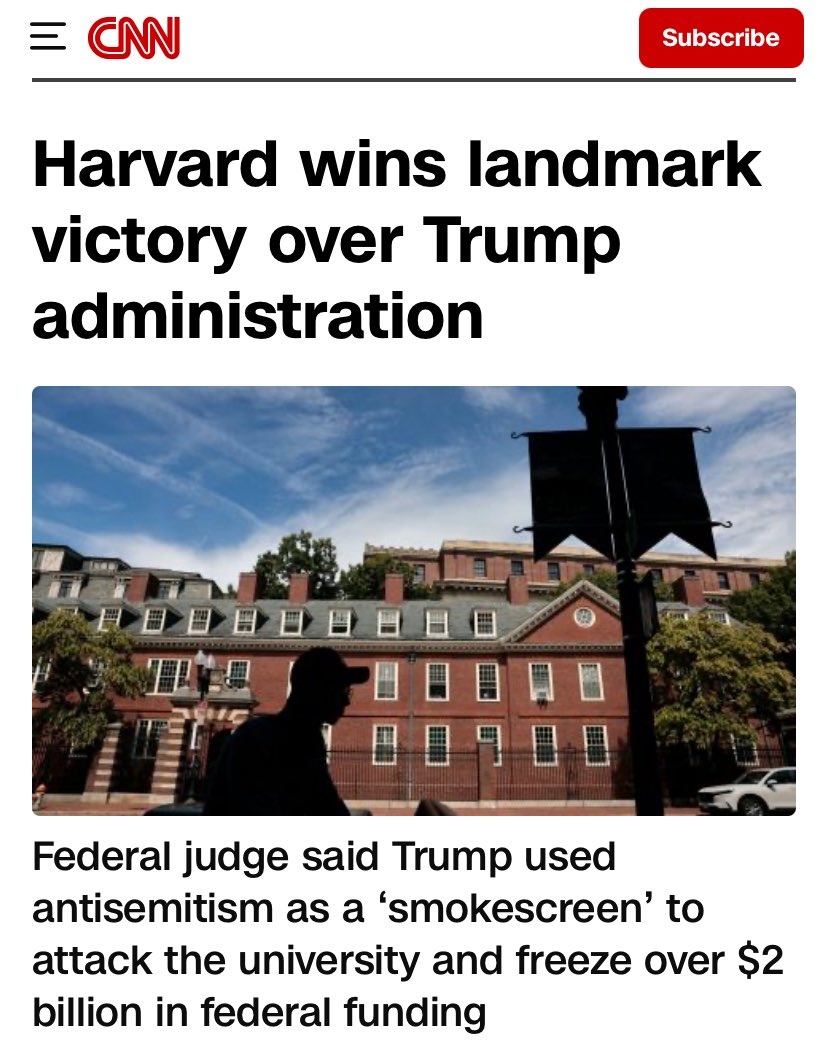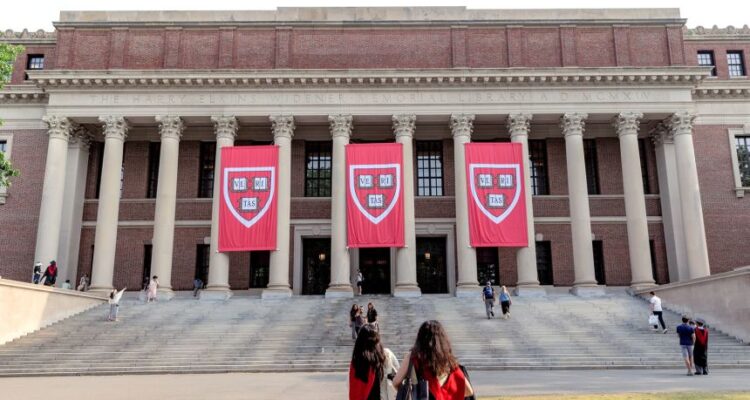In a sweeping federal court decision delivered on Wednesday, U.S. District Judge Allison D. Burroughs ruled decisively in favor of Harvard University, accusing the Trump administration of violating constitutional rights by freezing approximately $2.2 billion to $2.6 billion in federal research funding—a move she deemed politically motivated and illegal.
The Ruling at a Glance
Judge Burroughs determined that the administration’s decision to suspend or terminate billions in research grants constituted retaliation against Harvard for refusing to comply with government demands, breaching the First Amendment, Title VI of the Civil Rights Act, and the Administrative Procedure Act . She ordered the immediate reversal of the freeze and issued a permanent injunction preventing further such actions.

Constitutional and Academic Implications
Judge Burroughs emphasized that the government’s actions undermined academic freedom and established a dangerous precedent by conditioning essential research support on political compliance. She maintained that even if serious issues like antisemitism must be addressed, they cannot serve as cover for punitive ideological interference.
Repercussions and Responses
-
The White House immediately announced plans to appeal, denouncing the ruling and arguing that “Harvard does not have a constitutional right to taxpayer dollars”.
-
Harvard President Alan Garber responded that the ruling validates the university’s defense of academic freedom, while signaling continued caution about the broader funding environment and negotiation landscape.
-
Notably, Columbia University negotiated a $220 million deal this summer over similar funding disputes, but Harvard’s courtroom success sets a different tone in the debate over federal oversight of universities.
What’s Next
While the court’s decision marks a pivotal defense of higher education autonomy, the broader battle continues. The administration’s appeal could escalate the case to higher courts, potentially even reaching the Supreme Court. Meanwhile, Harvard and other institutions remain under scrutiny—balancing constitutional rights, political pressure, and public accountability.

Why This Matters
This ruling stands out as a defining moment in the clash between executive power and institutional independence. It reinforces that the government cannot weaponize funding to coerce ideological conformity, reaffirming vital protections for free speech and research integrity.
Let me know if you’d like breakdowns on related cases—like visa restrictions or similar battles at other universities—or an in-depth look at the legal implications moving forward.

